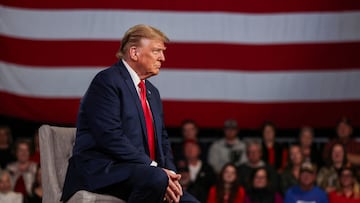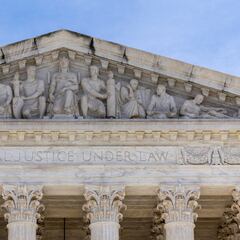When will the Supreme Court rule on Trump’s immunity from election fraud allegations?
The idea of putting any American above the rule of law sends shivers down many a spine, but that’s what former President Donald Trump is hoping for.

Last year, Donald Trump was arrested on four occasions, two of them in connection with efforts to overturn the 2020 presidential elections, which led to the January 6, 2021 attack on the United States Capitol. One of the cases is based on the investigation by special prosecutor Jack Smith, and another is being pursued in Georgia. The former president has exhausted all his resources to appeal for absolute immunity, even going to the Supreme Court of the United States.
SCOTUS sets April date for Trump
The Supreme Court, one that was heavily weighted towards the Republican agenda thanks to Trump’s time in office, agreed on Wednesday to decide whether the 77-year old can claim immunity in the case of electoral subversion by Smith. The highest court in the land agreed to expedite the case and hear arguments the week of April 22, as reported by CNN. The court ordered that the ruling of a lower court against Trump remains on hold until it decides on the matter.
Supreme Court agrees to decide whether Trump may claim immunity in special counsel's 2020 election subversion case, further delaying his trial https://t.co/4fFOnl0bpL
— CNN Breaking News (@cnnbrk) February 28, 2024
Trump’s arguments to appeal to “absolute immunity”
According to the arguments presented by his lawyers in various instances, the charges should be dismissed as the events occurred while Trump was still the president of the country, which shields him from federal criminal proceedings. As established in the United States Constitution, a president can only be criminally prosecuted if first found guilty by the country’s Senate in a political trial, popularly known as ‘impeachment’.
During his tenure in the White House, Donald Trump was impeached twice, once in 2019 and again in 2020; however, neither proceeded as the Republican-heavy Senate acquitted him both times.
In this case, the legal team of the former president points out that before a single prosecutor can ask a court to judge the president’s conduct, Congress must have approved by accusing and condemning the president. Additionally, Trump’s defense argues that without immunity for official acts, future presidents of the country would be exposed to “partisan charges”, which would eventually open “Pandora’s box”.
"This is B.S.—you were doing this as a dilatory tactic to help your political friend," says @Maddow on SCOTUS. "And for you to say that this is something that the Court needs to decide because it's something that's unclear in the law is just flagrant, flagrant bullpucky." pic.twitter.com/v1NKDorzb0
— All In with Chris Hayes (@allinwithchris) February 29, 2024
What next for SCOTUS and Trump?
As stated above, the Court will hear the arguments the week of April 22, and subsequently share its decision, leaving several scenarios.
Related stories
For the moment, Trump will postpone his trial for, at least, several weeks. If the decision is favorable, the former president will be able to claim immunity in this and other cases. That could lead to any president being able to do anything without prosecution. If the Court had rejected Trump’s request, Special Prosecutor Smith would have been able to act more quickly, practically ensuring a trial before the November presidential elections.
If the Court decides that Trump cannot claim immunity, the trial for electoral interference can continue. The almost-certain Republican nominee faces four criminal charges: conspiracy to defraud the United States, conspiracy to obstruct an official proceeding, obstruction and attempted obstruction of an official proceeding, and conspiracy against rights. Even if this were to happen, it may be delayed long enough for him to get back into the White House first, and then who knows what could follow with the power back in his control.


Complete your personal details to comment